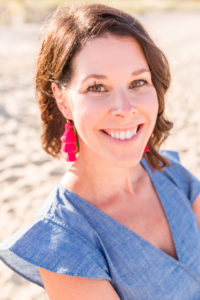
Cassidy MR. Photography
Lauren Edmondson has a BA from Williams College and an MFA in fiction from Sarah Lawrence College. She lives in Northern Virginia with her husband and two children. Wedding of the Season is her second novel.
Behind the Book – Wedding of the Season
The idea for Wedding of the Season came about five years ago, when I was visiting Newport on a girls’ trip. We went—as you should—to visit The Breakers, the grandest of all the historic Newport mansions owned by the Preservation Society of Newport County. There, I learned that the descendants of the Vanderbilt family, who had called the “cottage” home for 120 years, were moving out of their third-floor apartments, having turned over the rest of the mansion to tourists and preservationists. This relocation was either voluntary or involuntary, depending on which source you read.
The situation sparked my curiosity, and soon I was down the rabbit hole of Vanderbilt and Gilded Age mansion lore. Immediately, I saw parallels between the turn-of-the-century American royals—their conspicuous consumption, their pathological need to be rich, their obsession with keeping social hierarchies static—and today’s elite.
To illuminate this parallel in the story, I decided my protagonist, Cass, would be caught between this past and present, still saddled with the name and the thorny, problematic family legacy, but no longer welcomed into the corridors of power—economic or social. Cass is also the middle child, less recognizable than her public-facing siblings, unable to see a place for herself in the family or in Newport.
Centering the conflict around a wedding was a fun way to dramatize how people like the Coventrys are different, their public personae and famous names an instant draw to online gossip and mainstream press. On the other hand, planning a wedding can be an acute stress point for even the most functional of families, so the grand event was useful in bringing out just how hilariously regular the Coventrys are, concerned both with things existential—careers, love, life’s purpose—and mundane—Instagram followers, outfit choices, knick-knacks.
Ultimately, though, I wanted the novel to be optimistic about how families can change, over summers and over centuries, and still remain lovingly intact. In the end, Cass gets an education about the family and place that she has long since written off, and is made whole in the process.
